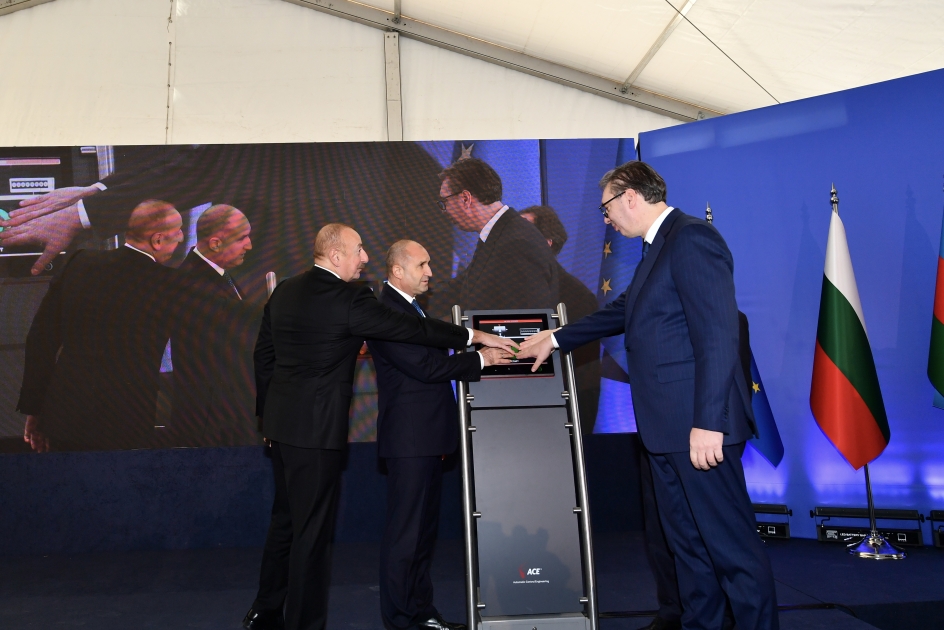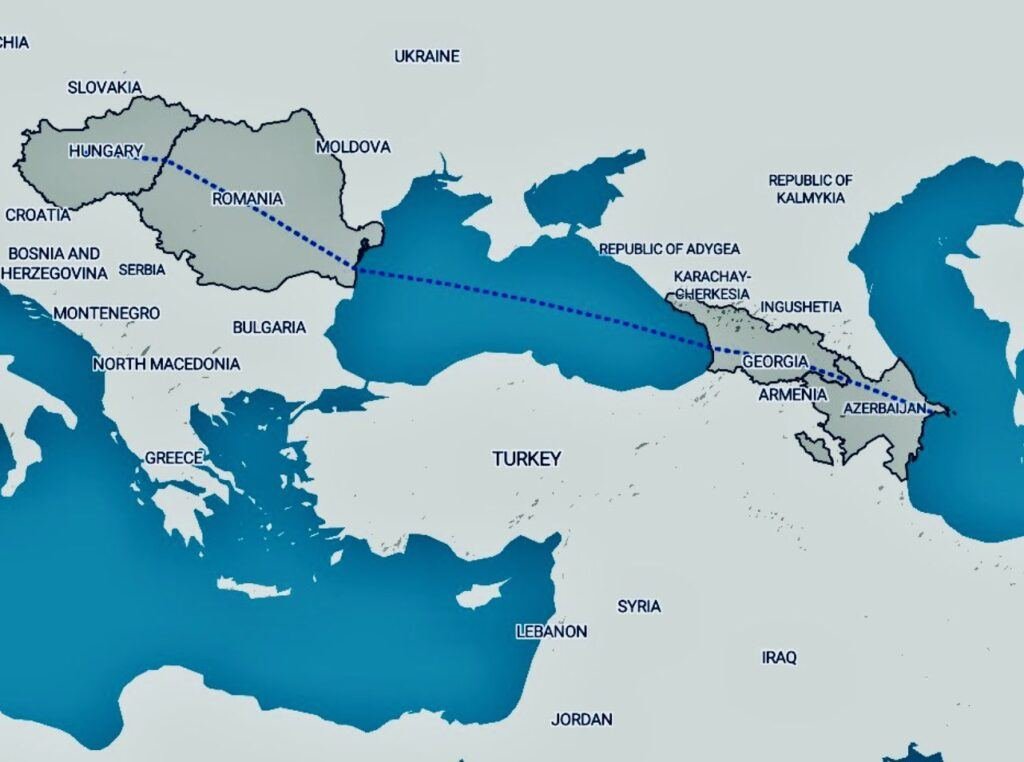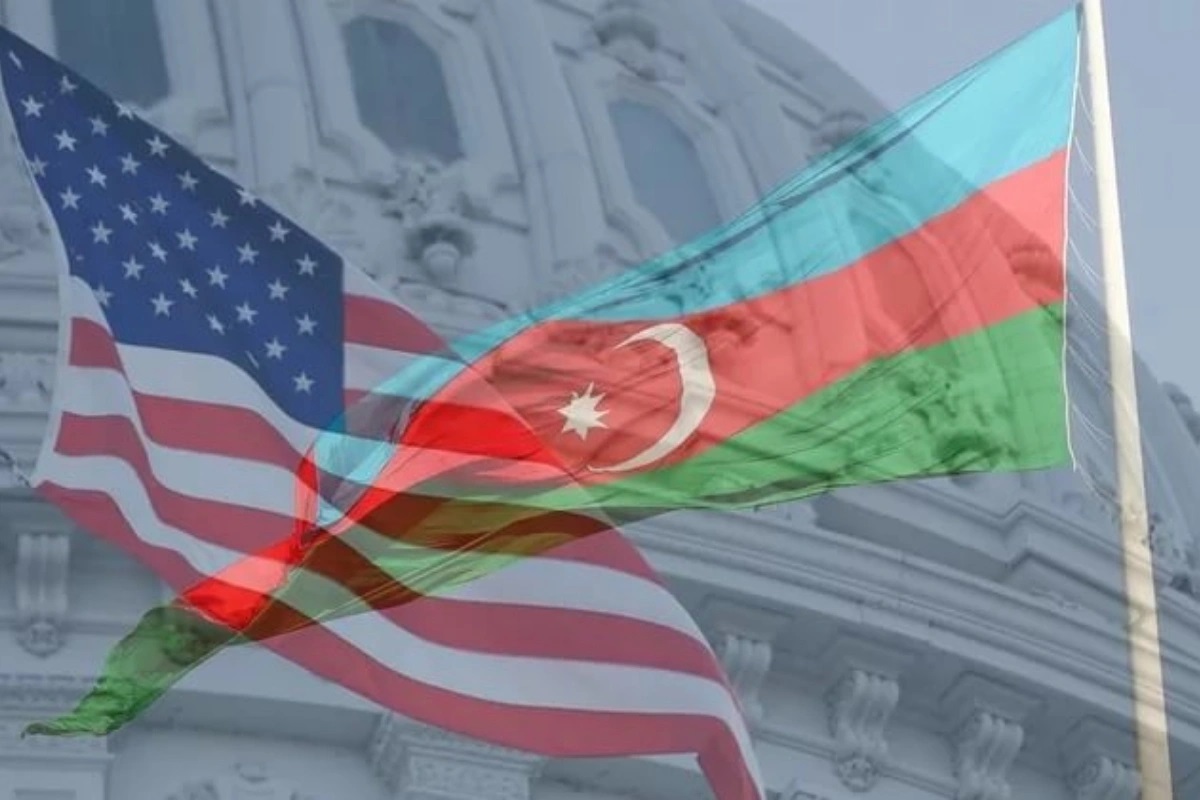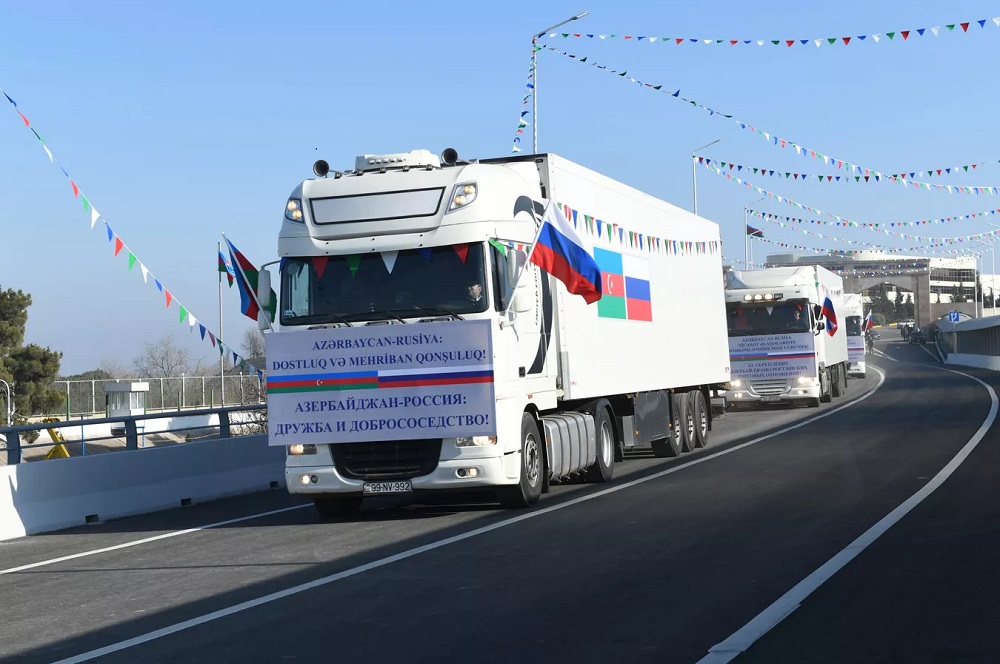Azerbaijan's role amid the crisis of the global security and governance system. A view from Baku
Azerbaijan and global security
JAMnews presents an analytical article prepared by the South Caucasus Research Center (CSSC) on Azerbaijan’s role during the crisis of the modern global security and governance system.
- “It’s possible to win the Nakhchivan road issue without military intervention” – A view from Baku
- Tehran’s panic over Zangezur: Iran against Russia? A perspective from Baku
Crisis of the global system: From compromise to confrontation
The modern global security and governance system was established after World War II, with the United Nations (UN), particularly its Security Council (UNSC), as its foundation. The five permanent members (the U.S., USSR/Russia, China, the U.K., and France) played a decisive role, making the UNSC a kind of global security umbrella, tasked with safeguarding international peace and security.
In parallel, the global financial-economic system was restructured. Through the Bretton Woods Agreements, the previous gold standard-based international financial and trade system was replaced by today’s system, which is based on the U.S. dollar. As a result of these agreements, global financial institutions like the World Bank and the International Monetary Fund were created.
On a regional level, two opposing military alliances were formed: the North Atlantic Treaty Organization (NATO) and the Warsaw Pact, but a consensus emerged between them. The Organization for Security and Cooperation in Europe (OSCE) was established to address regional political disputes.
After the collapse of the Soviet Union in the 1990s, the Western-centric global governance system became dominant. Eastern European countries that had once been part of the Warsaw Pact, along with the Baltic states from the former USSR, joined NATO. Post-Soviet states, including those in Central Asia, also became part of the OSCE.
This system managed to last only until the second decade of the new millennium. While political conflicts and economic shocks occurred periodically during this time, issues were largely resolved within the existing security framework. However, the resurgence of Russia and the rise of China in the second decade of the 21st century led to these powers asserting their own ambitions.
The first major crack in the global security and governance system appeared during the Syrian conflict, where the West failed in its attempt to achieve regime change. The conflict in Ukraine deepened this rift, rendering the international system ineffective. Unable to counter the West’s influence in Ukraine peacefully, Russia resorted to war as its only option.
The war in Ukraine ultimately paralyzed the modern global security and governance system. Competition within the UN Security Council, the core of this system, has escalated into outright hostility.
As a result, the Syrian and Ukrainian wars dismantled the global and regional security system established after World War II. The UN lost its global function, and the OSCE became ineffective regionally.
This has brought the need for reforms in the UN and its Security Council to the forefront. Meanwhile, we are witnessing various initiatives regarding the OSCE. While the U.S. seeks to maintain dominance over the OSCE, Europe favors a European political union format without U.S. or Russian involvement. The European Union aims to act as a more independent geopolitical and military power, rather than just an economic one. The outcome of the war in Ukraine will determine the fate of these initiatives.
Sanctions imposed on Russia due to the war have disrupted the global trade and financial system for countries allied with the Kremlin. As a result, there is a growing search for alternatives to the U.S. dollar as the global currency, and efforts are being made to establish a new financial settlement mechanism based on local currencies.
In short, the world is currently going through a highly complex and uncertain historical period. The existing global governance system no longer works, while a new one has yet to emerge. Various global and regional initiatives are being proposed, and which one proves more sustainable depends on future developments.
Geopolitical identity of Azerbaijan: Where are we?
Azerbaijan has a historically complex and multifaceted geopolitical identity. The factors constituting this identity can be divided into two categories based on their nature and significance:
- Natural and unchanging foundations
- Later-evolved foundations subject to change
Unchanging factors of Azerbaijan’s geopolitical identity:
- History: The region’s history includes Southern Caucasus, Central Asia, the Middle East, and its past as part of the Russian Empire and the USSR.
- Geography: Located on the European continent.
- Religious Affiliation: Part of the Islamic world.
- Language/Culture: Part of the Turkic world.
Azerbaijan’s current membership in the CIS reflects its recent history. As part of Europe, Azerbaijan actively participates in OSCE activities. Its religious affiliation makes it an active member of the Organization of Islamic Cooperation. The shared language and culture have positioned Azerbaijan as a founding member and proponent of the Organization of Turkic States.
These factors have been a natural and constant basis for Azerbaijan’s foreign policy for many years. Favoring one factor over another would necessarily impact the others. Consequently, Baku’s official stance has always been to maintain a balanced foreign policy.
Over the years of independence, Azerbaijan’s geopolitical identity has been enriched with new elements alongside these unchanging factors:
- Energy flows
- Transport and logistics opportunities
- Non-aligned movement and anti-colonial trends
- COP and global climate agenda
Currently, Azerbaijan is expanding its energy export map, with a shift in export structure that increasingly incorporates green energy alongside traditional sources like oil and gas. Baku is actively developing North-South and East-West (Middle Corridor) projects and constructing new international transport routes. Additionally, as a leader of the Non-Aligned Movement, Azerbaijan supports small states and ethnic minorities suffering under the colonial policies of major powers. Furthermore, as it prepares to host COP29, Baku remains engaged in global climate discussions, reflecting the pressing nature of these issues.
Azerbaijan’s complex, mixed, and layered geopolitical identity presents both significant opportunities and multi-faceted risks.
The country adeptly leverages available opportunities and minimizes the impact of risks through its foreign policy.
Azerbaijan was among the first to recognize that the existing security and governance system was no longer effective. The coalition of various countries that supported Azerbaijan during the 44-day war and the ability to counter attacks, which emerged from the UN Security Council, OSCE, and the EU during and after the conflict, resulted from skillfully exploiting the opportunities arising from its layered geopolitical identity.
However, the global landscape is rapidly changing and entering a phase of open conflict. Currently, the foreign policy of small states is increasingly constrained, making them targets of major power interests. When small states are located near conflict zones or experience internal conflicts, there is a risk of being involuntarily drawn into global conflicts.
The intricate geopolitical identity also impacts internal fragmentation. One of the government’s key challenges is achieving solidarity around national goals, as internal divisions can allow major powers to influence the foreign policy of smaller states.
Thus, Azerbaijan has addressed its primary challenge in a context where global and regional systems are paralyzed, and new systems are not emerging. In these complex conditions, besides ensuring security and economic development, Baku faces tasks such as participating in the reshaping of global and regional systems.
What is Azerbaijan doing?
The global order is currently in deep crisis. The existing global security architecture has lost its effectiveness, and the international financial system has become a tool for sanctions. The end of this process is not yet in sight, and it remains uncertain when new rules will be established.
The involvement of nuclear states in the global conflict makes it impossible for any side to win in an open war, suggesting that global uncertainty will persist for a considerable time. In a context where the current global security and governance systems are failing and new ones have yet to emerge, Azerbaijan’s actions are driven by its geopolitical identity and reflect Baku’s response to the ongoing changes in our historical and cultural space.
Azerbaijan is participating in the 3+3 format, which unites the South Caucasus and its neighbors from the outset. By establishing allied relations with Turkey, Azerbaijan is taking steps to secure dominant positions in the region. Since Georgia is not involved in the 3+3 format, Azerbaijan and Turkey are deepening their trilateral cooperation, positioning themselves as a regional power center.
In the near future, the European Political Union may serve as an alternative to the OSCE, emerging as a new element in the regional governance system in the European direction. Unlike its predecessor, this format lacks dominant powers such as the US or Russia. Azerbaijan has successfully built numerous partnerships with countries in Eastern and Southeastern Europe. If the European Political Union eventually evolves into a “new OSCE,” Baku will assert its position.
In the post-Soviet space, Azerbaijan remains a member of the CIS. Despite the organization’s significant weakening and loss of several members, Baku continues to value the platform as a regional forum.
Azerbaijan is strengthening its relationships with Central Asian countries both bilaterally and through high-level formats and organizations such as the Consultative Meetings of Central Asian Heads of State, the CSTO, and the SCO. Additionally, Azerbaijan is fostering strategic cooperation with China and maintaining relations with Afghanistan, alongside its established ties with Pakistan.
In the Middle East, the long-standing animosity between regional states has prevented the formation of a unified management system. Nevertheless, Azerbaijan is not only developing bilateral cooperation with countries in the region but has also established stable relations with the Arab League and the Gulf Cooperation Council.
In the field of transport infrastructure, Azerbaijan is actively advancing projects crucial for the North-South and East-West (Middle Corridor) routes. By doing so, Baku is drawing attention from both global and regional players and aims to position Azerbaijan as a key link in the global supply chain.
Energy security is becoming increasingly important amid rising global tensions. Azerbaijan is contributing to global energy security by expanding its energy export geography to include European and Central Asian countries, and by diversifying its export structure to include green energy alongside oil and gas.
In summary, Azerbaijan is leveraging its position across various historical, cultural, and geographical regions to its advantage. Baku is participating in global discussions on reforms at the UN and exploring alternatives to the Bretton Woods system through global platforms such as BRICS, the Non-Aligned Movement, COP, and the OIC.
The main objective is to amplify Azerbaijan’s voice on the global stage, attract more partners, and ensure that all parties have a vested interest in maintaining Azerbaijan’s security amid ongoing conflicts.






















